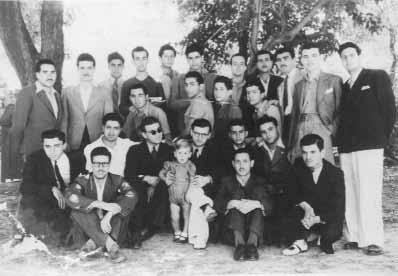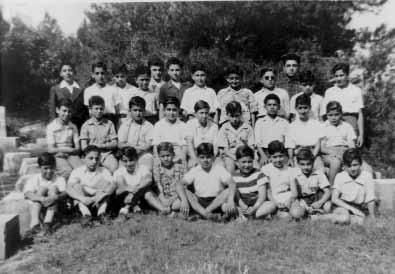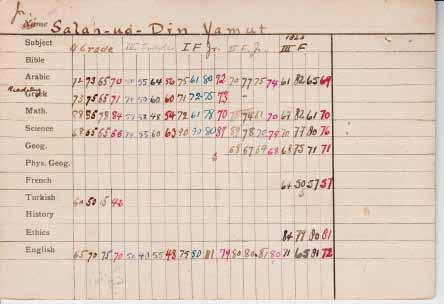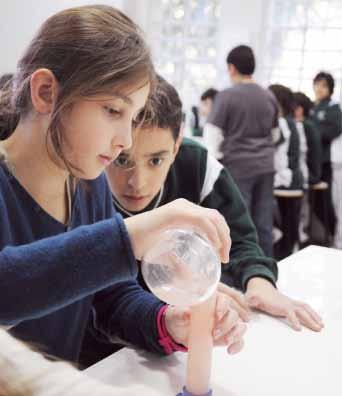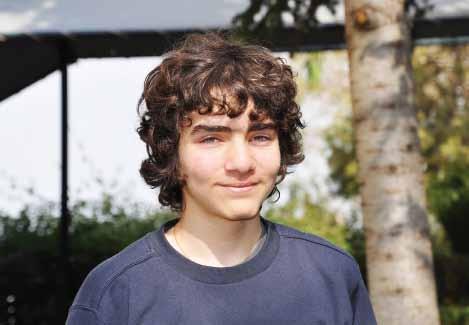
5 minute read
The man behind the building
The way he put it, it made perfect sense. You can’t take it with you. You can’t give it all to your kids as they may “spend it all in a year”. And much like Rockefeller and Sage did a century before him, Hisham Jaroudi ‘62 decided to simply give it back. “IC is what formed me, it’s what made me, it’s what taught me the principles I needed in this life,” he said. And so it is that IC is proud to announce that the first of the three up and rising new elementary school buildings is now the Hisham Izzat Jaroudi building. The man behind the building is a 68year old with gray hair, a wide grin and twinkling eyes. Some may know him as an architect, others have heard of him as the president of the Sporting Club in Manara (al Riyadi), some may know him as a board member in the Makassed Philanthropic Islamic Association, some may remember him as a close associate of former Prime Minister Rafik al Hariri, others may remember him as the closest friend of Saeb and Tammam Salaam, and some may simply know him as the loving father of alumni members: Tammam, Nadia and Thuraya. At heart, he is what he always has been. “I’m from the middle class,” he chuckled. In fact, he refuses to be anything else. His principles in life are simple: work hard, be ethical, take risks, be positive, depend on yourself, love your work, don’t be shy, dream and no matter what you do, “don’t put cash in your kids hands or they’ll end up failing”, he said. “Give them a solid education and let them make their own way.” He has an uncanny memory for details. He remembers every teacher and every classmate. There was English teacher, Charles Addington, who upon hearing his class complaining about the country was quick to admonish his students. “It’s not the country,” he said. “It’s you who make it good or bad.” And there was Toufic Attaya, then elementary school principal, who showed the young Jaroudi and the rest of the sixyear-olds a piece of candy wrapper that he saved from the day before. “I could have thrown it out in the street,” he said. “But I didn’t. I put it in my pocket so I can throw it in the trash.” Jaroudi even recalls his first lesson of modesty when he saw then IC president, Leslie Leavitt, stoop to pick up the trash in the playground.
And there was of course, Shafic Jeha, who “taught me all I know about my civic and moral duties towards my country,” said Jaroudi. “I cannot refer to him as anything but my ‘great teacher.’” But his favorite IC recollection was when Arabic teacher, Alfred Khoury, praised his
L to R: A young Hisham Jaroudi with brothers Nabil and Usama
50-page analysis. “You are the hope of the future. On your shoulders, nations will be built,” had written Khoury. Jaroudi took the words to heart and while he didn’t build nations, he certainly launched a successful career. Jaroudi’s beginning was a modest one. His father, a merchant in Foch Street, grilled his five children in ethics and conduct. He strongly believed in a solid education. He saved every lira and showed up every so often to school with a wad of cash in his pocket. Slowly and surely, he would count the pile of cash and hand it to the school. “You’re a good man,” Jaroudi once heard then IC president Thomas Schuller say to the father, “a good man”. It deeply affected Jaroudi. Until this day,
he holds his father up as the example of hard work, wisdom and perseverance. Every morning, elementary school students were lined up for inspection. Attaya and his assistant, Samia Khalaf (later to become Sullivan) would check shoes and nails for cleanliness. Every child was required to carry a clean handkerchief on him. Moral lectures would follow. “IC taught us to be independent, to think for ourselves and not to shy away from anything,” said Jaroudi. “We took risks. We went places. We were the ones who jumped off the tramway before our destinations. While students in other schools were at home glued to their textbooks (they are wearing glasses today!), we were experiencing life.” Jaroudi graduated from IC in 1962 and enrolled at AUB (he worked at the library at IC and AUB to make ends meet). But the country was going through turmoil and his father’s business was hit. The family was in debt. Jaroudi dropped out of university to help out his father. One year later, all debts were paid and Jaroudi returned to university. He graduated from AUB in 1966 as an Architect Engineer. Luck was on his side. As it turned out, only four students had graduated in architecture in Lebanon that year. And those students were sought after. It so happens that then Prime Minister Saeb Salam was looking for an architect for the Makassed Association (Salam would also later introduce him to Hariri). Jaroudi was recruited. Jaroudi’s career was officially launched. His hard work paid off and he found himself co-founding an engineering firm in Qatar, designing and building a number of villas in the Gulf. He entered the world of real estate with various projects in Europe. His ventures in Lebanon thrived and he became Hariri’s real estate consultant – especially advising him when it came to creating SOLIDERE. Jaroudi was doing very well financially. And while he was proud of his accomplishments, a nagging voice left him unsatisfied. “What is a million dollars if I don’t benefit other people as well?” he pondered. His first philanthropic act was a $25,000 donation to the Makassed Hospital in 1974. The Makassed Foundation had granted him a student loaned to study at AUB. Jaroudi felt he owed them. This was followed by various donations to charities and universities. The most recent was the Hisham Jaroudi Auditorium (Nursing school, AUB) in 2010. When IC’s Vice President of Alumni and Development, Moufid Beydoun ’64, approached him for a donation towards the Partnership for Excellence Campaign to build a new elementary school, Jaroudi didn’t hesitate. “I am towards the end of my career,” he said, “shouldn’t I at least give back to the school that started me off on this road?” In February, Jaroudi showed up to the IC alumni office and handed in his pledge. The Hisham Izzat Jaroudi building came into being. “I like it that my name will be there for centuries,” he said smiling broadly. “I like it that my great grandchildren will be proud to come here. Money comes and goes. But names stay forever.”


